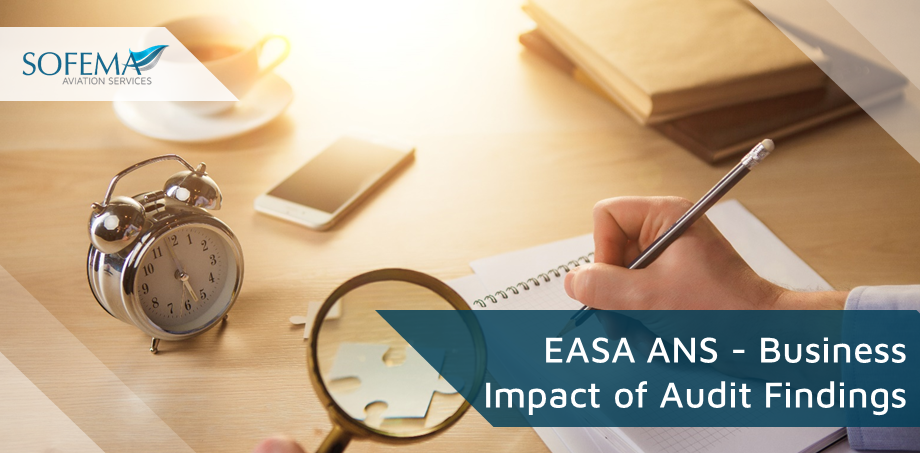Sofema Aviation Services (SAS) www.sassofia.com considers the role of Business Evaluation based on Compliance (Quality) and Safety Data looking at the Business Impact of Audit Findings and the development of effective mitigations.
Introduction
EASA Quality Assurance Auditing Introduction for Air Navigation Services (ANS) Regulation (EU) 2017/373 outlines the responsibilities and procedures for competent authorities in the aviation sector when non-compliance with safety regulations is detected in service providers.
- It establishes a system for analyzing findings, deciding on enforcement measures, and ensuring corrective actions are taken.
The evaluation of the business impact of audit findings related to ANS presents challenges, however with a proactive approach and effective mitigation strategies, service providers can address findings efficiently while minimizing negative business impacts.
Considering the Challenges
Evaluating the business impact of audit findings, especially in the context of the EASA Quality Assurance Auditing Introduction for Air Navigation Services (ANS) Regulation (EU) 2017/373, presents a range of challenges and issues.
- Interdependent components of an Integrated System where an audit finding in one area can have cascading effects on other areas, making it challenging to assess the full business impact.
- While some audit findings might have clear financial implications, others might have more intangible impacts, such as on reputation or customer trust. Quantifying these impacts can be challenging.
- Balancing Safety and Business Objectives needs to receive careful consideration, paying attention to the primary goal of the EASA regulations is to ensure safety.
o Corrective actions can sometimes be costly or disruptive and it is necessary to find the balance between addressing audit findings and maintaining operational efficiency.
- The regulation allows for competent authorities to decide on enforcement measures. This variability can lead to inconsistencies in how different service providers are treated, potentially leading to competitive imbalances.
- Addressing audit findings promptly is crucial for safety. However, implementing changes might require significant time, especially if they involve infrastructure modifications or retraining of staff.
- Communicating audit findings and their implications to stakeholders, including employees, customers, and investors, is vital.
o However, there’s a challenge in presenting the information transparently while avoiding undue alarm or negative publicity.
- Implementing corrective actions often requires resources, both in terms of finances and manpower.
o Especially for smaller service providers, this can be a significant challenge.
Considering Effective Mitigations:
- Employing a risk-based approach to prioritize audit findings based on their potential safety impact and the risk they pose to the business.
o A risk-based approach to evaluating audit findings involves prioritizing them based on their potential safety impact and the risk they pose to the business.
o This approach ensures that resources are allocated to address the most critical issues first.
o Each audit finding is assessed based on its potential safety implications and the likelihood of those implications occurring. This involves both qualitative and quantitative analysis.
o Based on the risk assessment, findings are ranked. Those with the highest potential safety impact and likelihood of occurrence are prioritized.
- For high-priority findings, immediate corrective actions are formulated. For lower-priority findings, a longer-term mitigation strategy might be acceptable.
- The effectiveness of the mitigation strategies is continuously monitored and reviewed. Adjustments are made as necessary based on feedback and outcomes.
Next Steps
Please see the following course EASA Quality Assurance Auditing Introduction for Air Navigation Services (ANS) – 3 Days
Visit our websites www.sassofia.com and www.sofemaonline.com or email team@sassofia.com
Tags:
EASA Quality Assurance Auditing, SAS blogs, Audit Findings, Safety Data, EASA Air Navigation Services (ANS), Business Evaluation, Business Impact, Air Navigation Services (ANS) Regulation (EU) 2017/373




